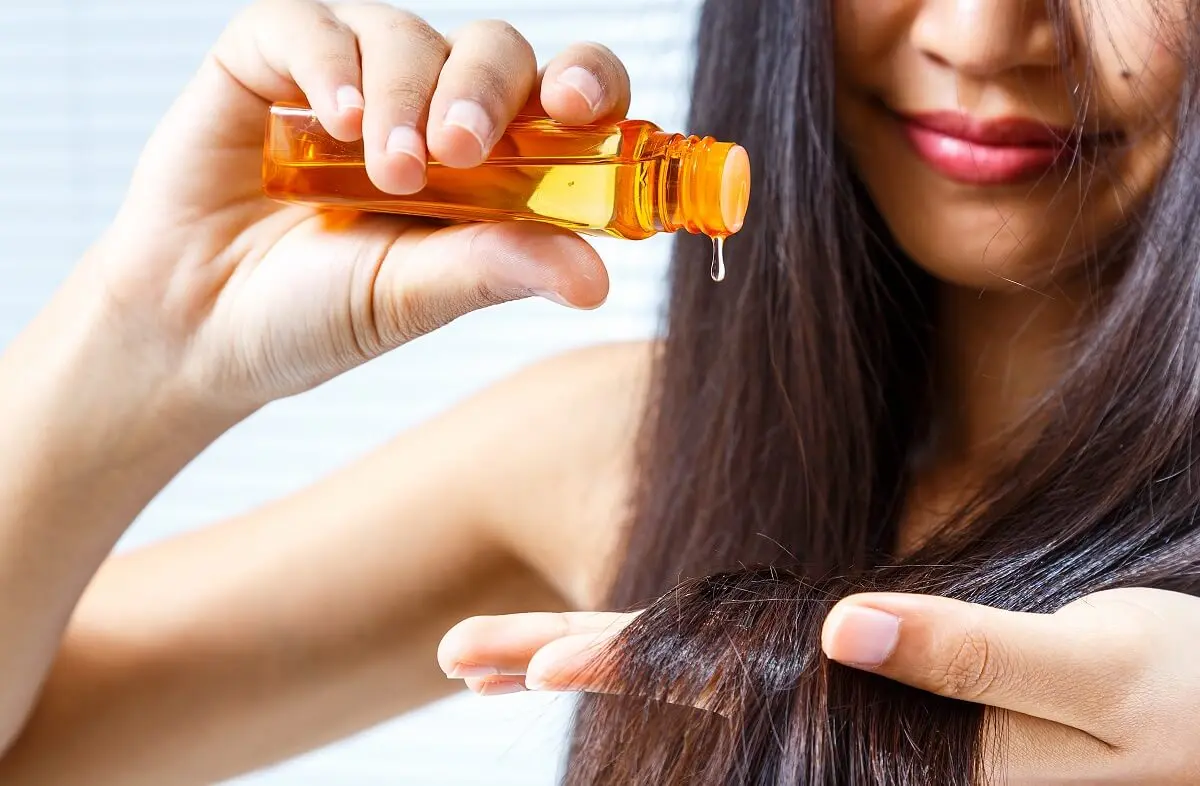Coenzyme Q10 for Hair: What You Should Know


Reviewed and approved by the nurse Leidy Mora Molina
In general, all of the vitamins needed by the hair are produced by the body. However, certain nutrients can be reinforced with oral supplements and enriched topical ampoules. This is the case of coenzyme Q10 for hair, a compound that is closely related to its healthy growth.
This nutritional addition is also linked to the work of metabolism, heart health, and muscle relaxation. However, at a cosmetic level, it stands out for the results obtained by those who seek to restore hair health. What are its effects? How is it used? Read on!
What is coenzyme Q10, and from what sources can it be obtained?
Coenzyme Q10, “ubiquinol” or “CoQ10” is defined by Nutri-Facts as a fat-soluble compound stored in the body’s tissues. It’s similar to a vitamin, but the fact that the body is able to synthesize it makes a difference.
To be more precise, it’s located within the mitochondria and is necessary for the respiration process of cells. Through it, energy from fatty acids and carbohydrates is transformed into cellular fuel.
However, although it’s produced naturally, it’s possible to consume it in pills, powders, and serums . Likewise, there are foods that provide it in small quantities. For example, the following:
- Turkey
- Fruit
- Salmon
- broccoli
- spinach
- Legumes
- Cruciferous vegetables
- Sesame seeds
- Olive, grape seed, and soybean oils
If CoQ10 levels are low, the person tends to get tired faster, feel muscle weakness, experience less endurance, and show early aging of the skin and hair.
On the last point, it’s one of the essential ingredients of many hair treatments aimed at restoring hair vitality and stopping hair loss.

We think you may be interested in reading this, too: Check Out These 12 Types of Hair Spray and How to Use Them
The effects of coenzyme Q10 on the hair
It’s essential to be clear that taking a CoQ10 supplement alone will not completely change the appearance of hair. It’s necessary to apply other care methods and to pay attention to the diet. Together, this allows the recovery of brittle, porous, and dull hair.
CoQ10 treatments influence hair thickness and elasticity, among other benefits.
It promotes the flow of oxygen
Reinforcing the coenzyme Q10 helps with the oxygenation of the scalp. This skin demands enough oxygen to generate energy in the cells and strengthen the hair follicles.
It increases the production of keratin
The Medical Dictionary of the Clínica Universidad de Navarra explains that keratin is an insoluble and sharp protein made up of polypeptide chains. It’s also the main constituent of hair and nails.
Research reported by the International Federation of Cosmetic Chemists Societies Journal revealed that coenzyme Q10 is a potent bioactive that stimulates different hair keratins, especially those minimized by aging in hair follicles.
Shampoos, tonics, and flash ampoules enriched with CoQ10 are recommended for hair care, as they contain anti-aging properties based on keratins.
It contributes to an efficient metabolism
Coenzyme Q10 plays a fundamental role in obtaining energy through the cells; this is highlighted by the Spanish Society of Anti-Aging and Longevity Medicine.
As the years go by, the levels of this compound are reduced, so there is less energy efficiency. If cellular energy is insufficient, the metabolism suffers, and this manifests itself through symptoms such as capillary weakness.
Coenzyme Q10 is an antioxidant
According to an article in Offarm, certain diseases and age cause oxidative stress. Ubiquinol functions as an antioxidant with the power to neutralize free radicals.
This is how CoQ10 protects the hair follicle from damage caused by the aging process, toxins, and pollution.
Like this article? You may also like to read: 13 Makeup and Hairstyle Tricks to Save Time in the Mornings
How to use coenzyme Q10 hair treatments
Although coenzyme Q10 can be part of treatment, the U.S. Food and Drug Administration (FDA) has not approved it as a medicine. However, it’s distributed as a dietary supplement and recommended by health professionals.
This oral compound is popular in soft gels, capsules, and powders. Topical application is with capillary serums. In the case of tablets, dosages and potencies should strictly be prescribed by a doctor.
Ampoules directly to the hair are to be used at home or as part of moisturizing treatments applied by stylists.

Are there any risks from the use and consumption of ubiquinol?
Coenzyme Q10 supplements for hair do not cause serious adverse reactions, as it’s a substance that’s naturally produced by the body. The side effects that it could cause are related to abdominal pain, nausea, and stomach upset.
Pregnant and lactating women should necessarily consult with their doctor about the intake of CoQ10. Also, those who are prescribed anticoagulants and statins because the coenzyme could interact with these drugs.
What to remember?
Coenzyme Q10 is a supplement that can contribute to hair health as long as it’s complemented with other care, such as the use of appropriate products, a good diet, and protection against external aggressions. Right now, it’s part of several hair treatments to nourish and repair the hair.
All cited sources were thoroughly reviewed by our team to ensure their quality, reliability, currency, and validity. The bibliography of this article was considered reliable and of academic or scientific accuracy.
- Arenas J. El envejecimiento cutáneo y la coenzima Q10. Offarm. Vol. 20. Núm. 5. pp. 114-121. España; 2001. https://www.elsevier.es/es-revista-offarm-4-articulo-el-envejecimiento-cutaneo-coenzima-q10-13013474
- Coenzima Q10. Nutri-Facts. https://www.nutri-facts.org/content/dam/nutrifacts/pdf/nutrients-pdf-es/Coenzima_Q10.pdf
- Durántez A. Coenzima Q10, un nutriente del que hay mucho que saber por las importantes funciones que desempeña en el organismo. Sociedad Española de Medicina Antienvejecimiento y Longevidad. España; 2020. https://www.semal.org/es/component/k2/coenzima-q10-un-nutriente-del-que-hay-mucho-que-saber-por-las-importantes-funciones-que-desempena-en-el-organismo
- Giesen M, Gruedl S, Oezkabakcioglu Y, Petersohn D, Poppe E, Scheunemann V, Welb T, Zur Wiesche E. La coenzima Q10 tiene efectos antienvejecimiento en el cabello humano. Revista Federación Internacional de Sociedades de Químicos Cosméticos. Vol. 11. Núm. 1. Estados Unidos; 2008. https://onlinelibrary.wiley.com/doi/epdf/10.1111/j.1468-2494.2008.00451_5.x
- Keenaghan M, Sood B. Coenzima Q10. StatPearls. Disponible en la Biblioteca Nacional de Medicina. Estados Unidos; 2022. https://www.ncbi.nlm.nih.gov/books/NBK531491/
- Queratina. Diccionario Médico. Clínica Universidad de Navarra. España. https://www.cun.es/diccionario-medico/terminos/queratina
This text is provided for informational purposes only and does not replace consultation with a professional. If in doubt, consult your specialist.








